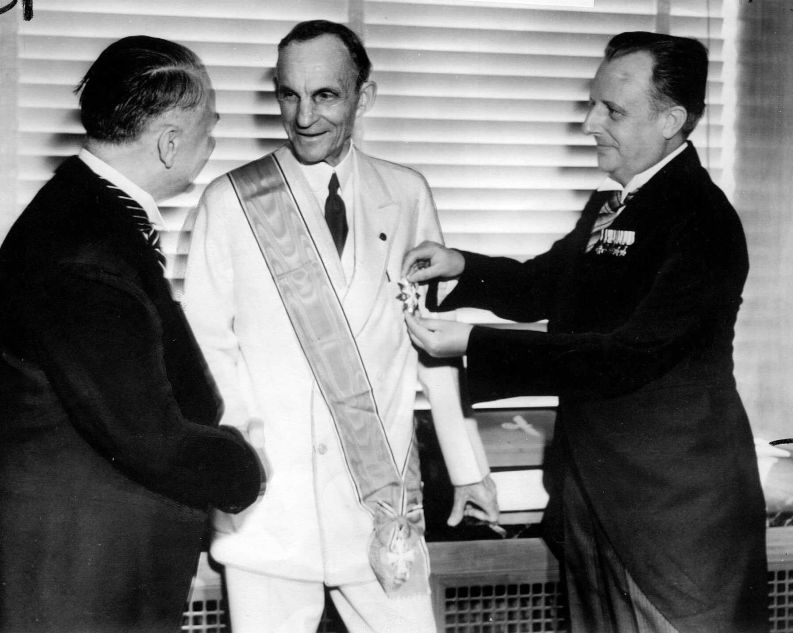There are two questions that always come up on the eve of Victory Day - why did defeating Nazism cost the victors so much, and why did the Nazis and their accomplices get let off so comparatively lightly? Journalist of Rossiya 1 TV, Andrey Medvedev, has made a film called "The Great Unknown War", in which he reveals that large western capitalists helped Hitler come to power and financed the Nazis not only in the Thirties, but also during the war. The project "Nuremberg. Casus Pacis" spoke with Medvedev about how German industrialists and foreign business representatives got off scot-free.
- Your film contains many unique figures and data on how big businesses cooperated with the Nazis. Which of them deserve special attention?
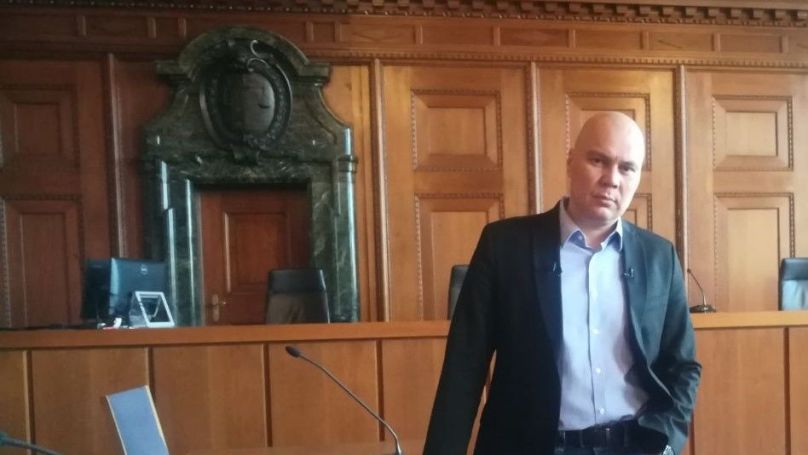
- For example, between 1936 and 1938 the cost of the Third Reich's mineral resources purchasing increased to 2 billion marks. Between 1938 and 1945 Sweden supplied Germany with more than 2,000 cars and anti-aircraft guns, as well as 50 million tons of iron ore. Also, Ford factories sold more than 85,000 trucks and 14,000 caterpillar vehicles to the Wehrmacht and 90 percent of the German oil market was controlled by the US, Great Britain and the Netherlands.
- Besides Ford, are there any other examples of Hitler's cooperation with foreign business?
- The Bank of England lent the Nazi regime £4 million; IBM supplied Germany 1.5 million punch cards to keep Jewish citizens under surveillance. America’s Standard Oil invested $120 million in the Third Reich, ITT Corporation invested $30 million, Ford - $17.5 million, General Motors - $100 million. It was no coincidence that in five years of the war the profit made by American monopolies in the oil, steel, chemical and aviation industries reached $57 billion.
In the film, we reveal that shares in IG Farbenindustrie - which issued the patents for the production of Zyklon B - were traded on the New York Exchange; that eugenic programmes in the Third Reich were financed by the Rockefeller fund as well as by the Carnegie foundation; that the Swedish banks had lent money to German industry until 1945, and that the Nazis paid them with the loot.
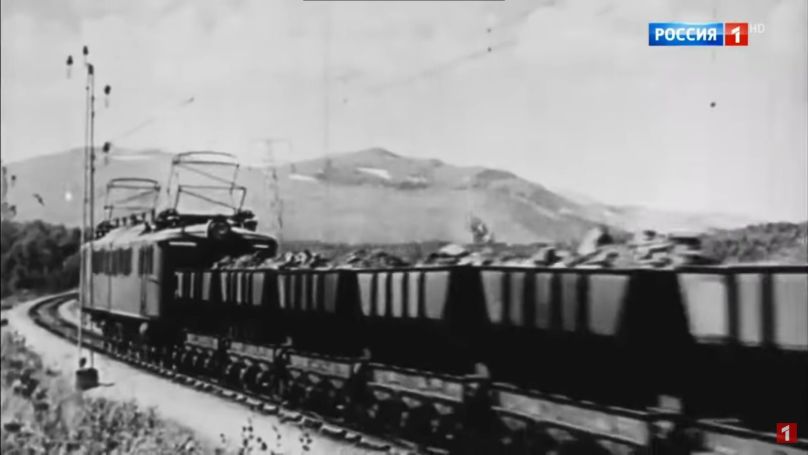
- Where did you get all this information from?
- The data was provided to us by German historians. There was also information available in the works of Russian scientists. All the sources are freely available, and we didn`t discover America, joke intended.
In 1947 and 1948, the Subsequent Nuremberg Trials took place. One of the trials dealt with Alfried Krupp, owner of the mighty Krupp Steel company, in which he and most of his co-defendants were convicted of crimes against humanity (plunder and slave labour). Krupp was sentenced to 12 years’ imprisonment. Were the big businessmen who supported Hitler punished enough? If not, why not?
They weren't punished enough because they were part of the global western infrastructure. Krupp's factories would not have been able to operate without Swedish steel; Swedish ore companies had western shareholders, and Krupp's factories had European, American, and British shareholders. Therefore, the guys made a deal and said ‘Well, wait for a while; we need to save face with the Russians, and then go home’. In Germany itself, despite the seeming unity of the historical school, there are scientists who claim that Hitler would not have managed military production of such magnitude without additional funding.
- Do you mean that the Hitler regime was financed by our allies?
- According to the Soviet interpretation of history, we had allies in the Second World War. But we in fact had no allies. There were western countries that first fed Hitler, until the mad dog got out of hand and began to devour them. And then they started shouting: "Russian bear, come, let's kill a terrible dog together!" And as soon as the dog was killed, they began to develop Operation Unthinkable. Why were all the Vlasovites gathered in camps in the territory occupied by the allies? Because they were supposed to become part of the strike group that would wage war on the territory of the Soviet Union.
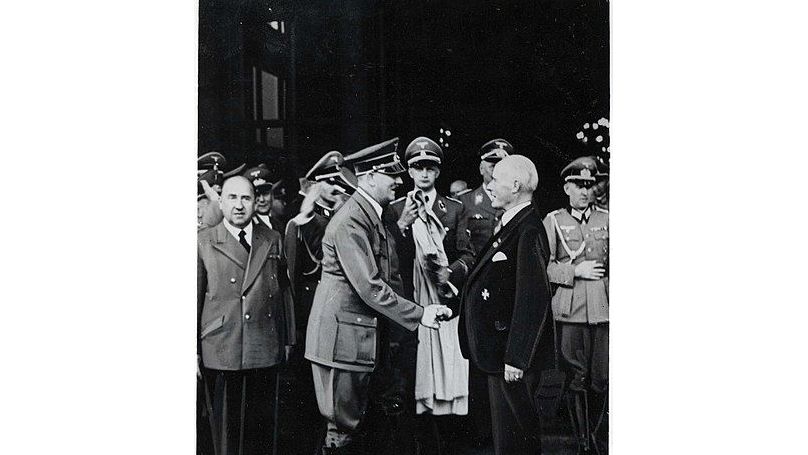
- But what about the Anti-Hitler coalition?
- It was a temporary, strategic union that came into existence only because Hitler, instead of invading the Soviet Union back in 1939 signed the Non-Aggression Pact. The British elite called it a terrible betrayal at that moment. And then Hitler started bombing Britain. But in fact Britain became an ally of the USSR only in 1942. And while the Soviet Union was waiting for the Second Front to be opened up, both the Americans and the British decided to transfer troops to North Africa.
If the Anti-Hitler Coalition had truly existed, the American government would have cut off all military supplies to Hitler. It would have put pressure on the Rockefellers to supply oil to the active army instead of sending it to Germany through the Canary Islands. In fact, in 1944 the American army in Europe did not have enough fuel to attack. And the reason it didn’t have enough was because all the oil was being sold to Hitler.
- But was there a lend-lease at all?
- Who benefited from Lend-Lease? Of course, it played a role in the victory and of course we got a good technique. But first, we paid for it in gold; and second, without Lend-Lease the war would have ended two years later with much greater casualties. But still, it would have ended with a victory for us.
- Was it difficult to shoot abroad considering the political situation and quarantine restrictions?
- We managed to make the film before the restrictions, and the political situation did not really bother me. For example, the "September 11" film was difficult to shoot, although we had a chance to talk to American political analysts and former CIA officers as well as to Colin Powell, the former US Secretary of State.
- Were there any cases when scientists refused to talk to a Russian journalist?
- There were no such cases. We found some specialists ourselves, other ones were found by our colleague, the producer of the Vesti bureau in Berlin.
- Have you discovered something new for yourself?
- Of course I have. For example, I have never delved into the history of the Bank for International Settlements, which financed Nazi Germany from western funds - including during the war. You seem to know everything, but then you see, for example, the footage of Leni Riefenstahl from the film "Olympia" and suddenly notice that the French delegation is happily doing the Nazi salute at the opening of the 1936 Summer Olympics in Berlin. Then again, you seem to know that Opel belonged to America’s General Motors Company, but when you read that gas chambers were built on its basis, you realise that shareholders in General Motors earned money out of the slaughter of Soviet children, Jews from Minsk and countless others. It seems that all the facts are well known, but when you look at them from a different perspective you can always find something new.
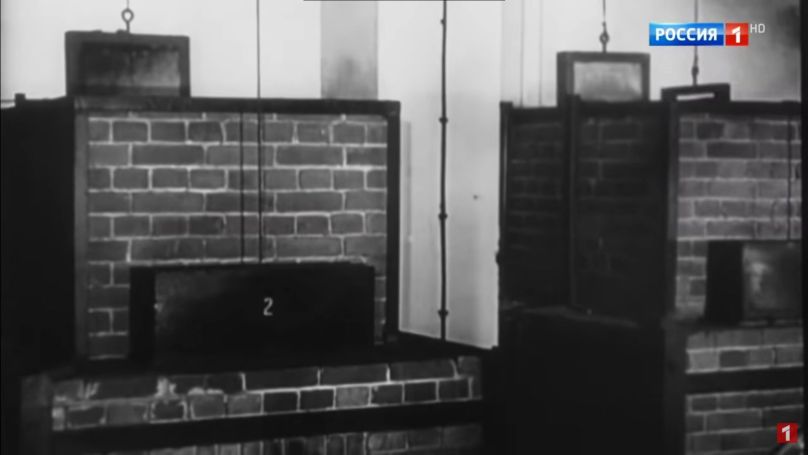
- Has your film been translated into foreign languages?
- It has not been translated yet, but this is not up to me. All rights belong to the All-Russian State Television and Radio Broadcasting Company (VGTRK) and that`s for them to decide.
- Are you going to carry on working on this subject?
- It`s unlikely that I will work on it directly but we are constantly making new documentaries, and the confrontation between Russia and the West – even leaving out the Second World War - is here to stay.
- What lessons can be learnt from the events described in your film so that forces such as the Nazis can never come to power again?
I feel the film makes everything clear: Nazism, fascism, left liberalism, Trotskyism are nothing but tools to enable big business and political groups to form the necessary agenda at a particular moment in a particular country. The main lesson is: don’t trust slogans, but analyse ongoing events. Big business must understand that it is impossible to feed a terrible animal and keep it under control.
Georgy Nikolsky
